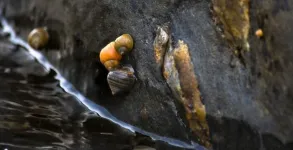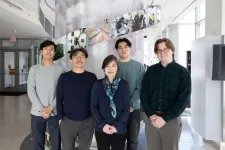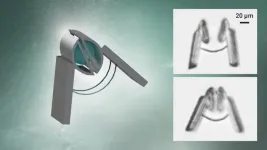(Press-News.org) In an Editorial, Science Journals’ Editor-in-Chief, Holden Thorp, outlines changes to the publication’s editorial policies and practices for 2024, including plans to adopt the use of Proofig – an artificial intelligence-powered image-analysis tool – to detect altered images across all six of the Science family journals. Proofig is a tool that screens images for duplication and other types of manipulations. Although Science has been conducting “human-eye” image checks on some papers, the new tool will enhance Science’s review process and reduce the potential for human error in the process. “Science has been piloting Proofig for several months with clear evidence that problematic figures can be detected prior to publication, so its use will expand to all papers under consideration that present relevant images,” writes Thorp. “This should help identify both honest mistakes and fraudulent activity before a decision is made.” In this Editorial, Thorp outlines how Proofig will be incorporated into Science’s review process and how authors will be notified should problematic issues arise. An accompanying press release introduces Proofig and its use in greater detail. “Through better monitoring for research errors, careful curation of content, and sharing information with policy-makers, we hope to build stronger trust and integrity in science in the coming year,” writes Thorp.
END
Editorial: Genuine images in 2024
2024-01-04
ELSE PRESS RELEASES FROM THIS DATE:
Biologists uncover the secrets of evolutionary change
2024-01-04
**Strictly embargoed until 19:00 GMT on Thursday 4 January 2024**
Biologists uncover the secrets of evolutionary change
Images available here
Big evolutionary changes happen gradually and not in giant leaps, a team of biologists led by the University of Sheffield have discovered
Using new methodology to study an evolutionary shift in the birthing style of marine snails, experts have been able to answer the long-debated question as to how game-changing innovations like flight, vision, and the bearing of live offspring happened
Understanding the evolutionary origin of these developments is important because ...
Does self-checkout impact grocery store loyalty?
2024-01-04
In an effort to reduce costs and improve customer satisfaction, retailers have implemented self-checkouts in stores across the country. They have become increasingly popular, but some brands like Walmart are removing self-checkouts in some locations while adding more in others. There are many advantages and disadvantages of self-checkout for both the customer and the retailer, but little formal research has investigated the impact of self-checkout on customers’ shopping experience. This led researchers from Drexel University’s LeBow College of Business to look at how self-checkout systems in grocery stores influence customer loyalty ...
Nanoparticle transport across the blood brain barrier increases with Alzheimer’s and age, study finds
2024-01-04
Neurodegenerative disorders such as Alzheimer’s disease affect more than 270 million people worldwide. AD is the leading cause of dementia, resulting in memory loss due to atrophy of neurons in the hippocampus, which is the part of the brain that regulates learning and memory. Nanoparticles designed to carry drugs have emerged as a strategy for treating different diseases, but in the context of neurodegenerative disease, much of the research has focused on developing strategies for getting nanoparticles across the blood brain barrier and into targeted regions of the brain.
In a new study, an interdisciplinary team of researchers at the University of Illinois Urbana-Champaign ...
Recent advances in medical applications of nanoparticles
2024-01-04
Nanoparticles have become an essential part of medicine, from aiding in diagnostic tests to serving as immunotherapy agents and more. Thanks to their ultrasmall size — around the thickness of a strand of DNA — these particles are adept at getting inside tissues and targeting precise areas. Here are three recent papers published in ACS journals that could expand the beneficial uses for nanoparticles, based on results in rats. The technology could be used to improve contraceptive methods, burn creams and arthritis ...
A high-tech research clinic on wheels
2024-01-04
Hispanic/Latina women with a history of hypertensive disorders of pregnancy (HDP) – conditions marked by high blood pressure during pregnancy – are more likely to have abnormalities in their heart structure and function decades later when compared with women without a history of HDP, according to a National Institutes of Health-supported study. The findings, published in the journal Hypertension, also suggest that while having high blood pressure later in life can contribute to these abnormalities, HDP play the greater role, significantly raising a woman’s risk of developing cardiovascular disease.
“The ...
Springs aboard – gently feeling the way to grasp the microcosmos
2024-01-04
These “picosprings” have remarkably large and tuneable compliancy and can be controlled remotely through magnetic fields (even deep within the human body) allowing articulated motion in microrobots as well as micromanipulations well beyond the state of the art.
Moreover, the extension of the picosprings can also be used visually to measure forces, for example propulsion or grasping forces, in interaction with other objects like cells. For example, these picosprings have been used to measure the locomotive propulsion force of sperm cells. The publication showcases these capabilities by demonstrating several ...
High folic acid and low B12 can affect fetal brain development in mice
2024-01-04
Folate is a B vitamin and a necessary nutrient to prevent neural tube defects, such as spina bifida. Folic acid, a synthetic form of folate, has been added to vitamins, breakfast cereals and other products in the U.S. and more than 80 other countries to ensure pregnant women get adequate amounts. However, new research suggests there may be such a thing as too much folic acid.
In a study published in Communications Biology, a Nature publication, researchers from the UC Davis School of Medicine and the UC Davis MIND Institute showed that imbalances in folic acid and vitamin B12 can alter brain development in mice.
“There's no doubt the introduction ...
Calibr announces license agreement with Gilead to develop a long-acting HIV antiviral agent for treatment in combination with lenacapavir
2024-01-04
LA JOLLA, CA — Calibr, the drug discovery and development division of Scripps Research, today announced Gilead Sciences, Inc. (Nasdaq: GILD) has exercised its option to exclusively license the research institute’s investigational nucleoside reverse transcriptase translocation inhibitor (NRTTI) prodrug. The NRTTI prodrug, designated GS-1614, is a development candidate resulting from a collaboration between Scripps Research and Gilead aimed at advancing a best-in-class long-acting HIV regimen.
Calibr ...
More lives can be saved if ambulance staff receive AI-support
2024-01-04
Assessing how seriously injured a person is, involves weighing up lots of different parameters fast. If healthcare professionals could get support making fast-paced, life-critical decisions from an AI tool, more lives could be saved. This is shown by research from Chalmers University of Technology in Sweden, along with the University of Gothenburg and the University of Borås.
"If severely injured people are transported directly to a university hospital, the chances of survival increase, as there are resources to take care of all types of injuries. Therefore, we need to be able to better say who is severely injured, and who is not, so ...
AURA appoints Christoph Keller as next National Solar Observatory Director
2024-01-04
The Association of Universities for Research in Astronomy (AURA) is pleased to announce that Dr. Christoph Keller has been appointed as the next Director of the National Science Foundation’s National Solar Observatory (NSO) succeeding Dr. Valentin Pillet, who will be retiring as Director in 2024. Previously Dr. Keller was Director of Science at Lowell Observatory in Flagstaff, Arizona. He will begin his five-year term on May 6, 2024.
“Christoph Keller is an outstanding choice for the next NSO Director,” ...




